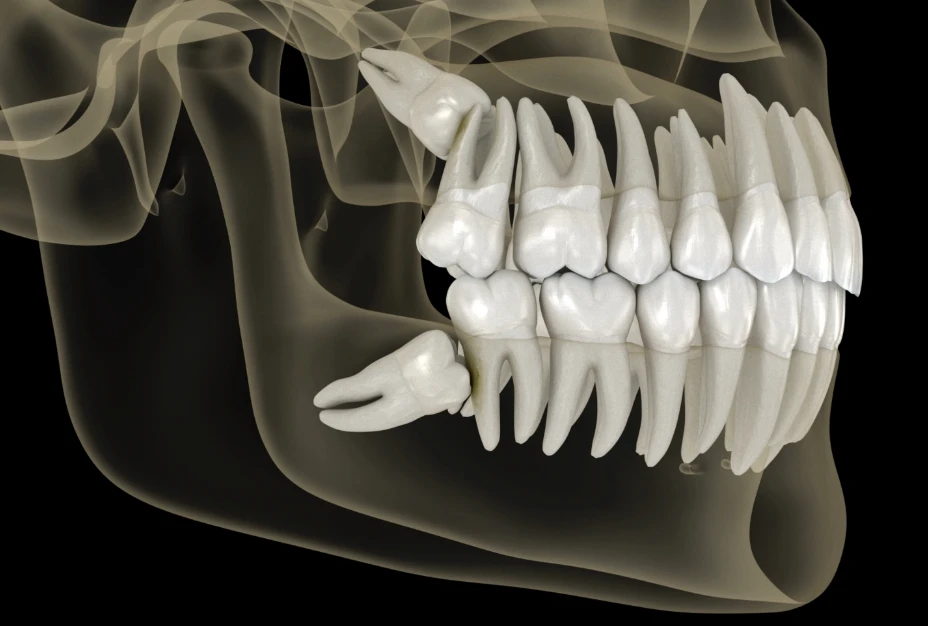Exploring Different Sedation Options for a Comfy Knowledge Pearly Whites Removal Experience

Local Anesthetic
Regional anesthesia is a generally used approach for numbing specific areas of the mouth throughout wisdom teeth extraction procedures. By carrying out a neighborhood anesthetic, such as lidocaine, a dental practitioner can ensure that the patient stays comfortable and pain-free throughout the extraction process.
Among the main advantages of neighborhood anesthesia is its targeted numbing result, which implies that only the particular location being dealt with is influenced. This local technique reduces the risk of systemic side effects and permits a quicker recuperation post-procedure. wisdom teeth removal aspendale. Additionally, local anesthetic is taken into consideration to be a routine and risk-free practice in dental care, with minimal dangers included when administered by a trained expert
Nitrous Oxide
Once the mask is eliminated, the effects of the gas use off quickly, allowing clients to resume their typical activities without lingering sedative results. Nitrous oxide is suitable for clients of all ages, making it a functional sedation option for wisdom teeth removals and various other oral treatments.
Dental Sedation

Unlike intravenous sedation, oral sedation does not require needles or injections, making it a much more comfortable choice for individuals with a worry of needles. Furthermore, oral sedation is considered safe and effective when administered by skilled oral professionals.
IV Sedation
Provided intravenously by qualified doctor, IV sedation is a powerful approach utilized to cause a regulated state of deep relaxation and unconsciousness throughout dental treatments. Unlike oral sedation, which can be uncertain in its results, IV sedation enables specific control over the degree of sedation, making it an optimal selection for complicated treatments like wisdom teeth extractions.
During IV sedation, a sedative drug is supplied straight right into the bloodstream with a blood vessel, permitting it to take effect swiftly and effectively. This approach ensures that the patient remains unaware and comfy of the procedure while still maintaining crucial features such as breathing and heart rate.
Among the key advantages of IV sedation is its capacity to supply a much deeper degree of sedation compared to various other approaches, making it especially appropriate for clients with high levels of stress and anxiety or those undergoing considerable oral job. Furthermore, the results of IV sedation typically subside slowly after the treatment, lowering the chance you could try these out of grogginess or remaining adverse effects. On the whole, IV sedation uses a secure and effective alternative for making certain a comfortable and stress-free experience during wisdom teeth removal.
General Anesthetic
Having discussed the benefits of IV sedation for knowledge teeth removal, the application of general anesthesia provides a different choice for people calling for a deeper degree of unfamiliarity during dental procedures. General anesthesia induces a regulated visit our website state of unconsciousness, ensuring the patient really feels no pain or pain during the removal procedure. This method is especially beneficial for people with serious oral stress and anxiety, facility medical requirements, or those going through multiple extractions concurrently.
General anesthesia is provided by an experienced anesthesiologist who carefully checks the patient's important signs throughout the treatment. It entails the usage of intravenous medications or breathed in gases to generate a state of unfamiliarity. While under general anesthetic, the client will not understand the surgery, experience any discomfort, or have any kind of recollection of the treatment later.
Although basic anesthetic is risk-free when administered by certified professionals, it carries a somewhat greater threat compared to various other sedation alternatives. wisdom teeth removal aspendale. People considering basic anesthetic for wisdom teeth extraction must review the potential dangers and advantages with their dental expert or oral doctor to make an informed choice based on their specific needs and case history
Final Thought
In conclusion, numerous sedation alternatives are readily available to guarantee a comfortable wisdom teeth removal experience. Regional anesthesia is commonly used for numbing browse around these guys the details area, while nitrous oxide provides leisure and pain alleviation. Oral sedation and IV sedation deal deeper levels of leisure, depending upon the person's demands. General anesthesia can be made use of for extra intricate instances. It is crucial to seek advice from your dental professional or dental surgeon to identify one of the most suitable sedation choice for your procedure.
Nitrous oxide is ideal for people of all ages, making it a flexible sedation choice for wisdom teeth extractions and other oral procedures.
Unlike intravenous sedation, dental sedation does not call for needles or injections, making it a much more comfortable choice for individuals with a worry of needles.One of the main benefits of IV sedation is its capability to provide a much deeper level of sedation compared to various other approaches, making it specifically appropriate for people with high levels of anxiety or those going through substantial oral job.Having discussed the benefits of IV sedation for knowledge teeth extraction, the utilization of basic anesthetic supplies an alternate choice for clients needing a much deeper degree of unfamiliarity during dental treatments. Dental sedation and IV sedation deal much deeper levels of relaxation, depending on the patient's demands.